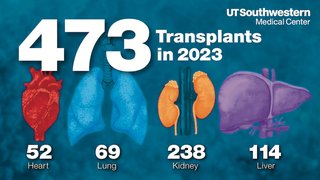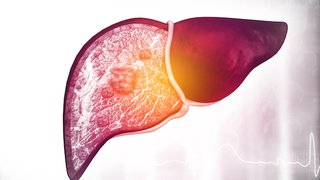Risk Factors of Fatty Liver Disease
The major cause of alcoholic fatty liver disease is drinking too much alcohol. For both types of fatty liver disease, obesity is a leading risk factor.
Our research has also shown that genetic factors such as ethnicity can also play a role in who’s at risk for fatty liver disease. For example, we found in the Dallas Heart Study that Hispanic people are at a higher risk for fatty liver disease, regardless of their weight. Caucasian people have a lower overall risk than Hispanic people, and African-American people are somewhat protected from having as much fat in the liver.
Diagnosing Fatty Liver Disease
If our team suspects fatty liver disease, we first conduct a thorough physical examination. We then talk with patients about their medical and family history, including alcohol use and any medications being taken.
Generally, we will order blood tests to check for high levels of liver enzymes. Depending on these results, we might also order imaging tests, including an abdominal ultrasound, computed tomography scan (CT), or magnetic resonance imaging (MRI) to check for fat in the liver. The most accurate way to diagnose fat in the liver is through a liver biopsy, in which we obtain a small sample of liver.
It’s then necessary to determine whether there is a significant amount of scarring (fibrosis) in the liver and whether it’s getting worse. A liver biopsy alone isn’t able to accurately provide this information.
We measure the level of scarring throughout treatment. UT Southwestern was one of the first centers in the country to use a FibroScan machine, a specialized ultrasound that measures the amount of scarring on the liver. We can perform this ultrasound in our clinic.
We also collaborate with UT Southwestern’s radiology experts on magnetic resonance elastography (MRE), which combines MRI with sound waves, to assess the level of scarring.
Treating Fatty Liver Disease
UT Southwestern’s team of liver specialists has a long history of advancements in the field, translating groundbreaking scientific insights into superior patient care.
There is currently no medication to treat fatty liver disease, but our physicians are working to develop new medications such as PCSK9 inhibitors based on the discoveries by UT Southwestern’s Jay Horton, M.D., and Helen Hobbs, M.D.
Until better treatments are available, the best approach to combat fatty liver disease is to prevent further scar formation and future complications. Diet, lowering carbohydrates, and exercise have been shown to be effective at treating fatty liver and preventing its progression. Our dedicated team works with a dietitian and each patient to develop an individualized nutrition and exercise plan.
For patients with alcoholic fatty liver disease, the best strategy is to abstain from drinking alcohol. UT Southwestern’s world-renowned Addiction Psychiatry team offers a unique way to treat alcohol abuse disorder that can improve long-term outcomes. It is one of the few programs in the U.S. that works alongside liver specialists.
If a patient does have complications, we can facilitate liver transplantation. Our highly trained specialists use the most advanced surgical techniques and technologies, and our program has a three-year patient survival rate that surpasses the national average.













